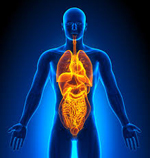Internal Medicine

Therapy or Internal Medicine is a branch of medicine dealing with the diagnosis and conservative (non-operative) treatment of internal diseases, which include diseases of the lungs and bronchi, heart and blood vessels, gastrointestinal tract and liver, as well as diseases of joints, muscles and bones. In fact, a therapist is a doctor who, after listening to your complaints, will be able to draw up an examination plan necessary for making a diagnosis, if necessary, refer you to the necessary specialist for consultation and, after receiving the results of the examination, draw up a comprehensive program for treating the disease.
Highly qualified therapists will help if you have:
- fever;
- sore throat and runny nose;
- cough;
- difficulty breathing (shortness of breath, choking);
- headache;
- chest (or heart) pain;
- increased blood pressure;
- heartbeat;
- heartburn;
- belching;
- abdominal pain;
- bloating;
- diarrhea;
- heaviness in the right hypochondrium;
- swelling;
- joint pain;
- hair loss, brittle nails;
- general weakness;
- increased fatigue.
Many diseases are accompanied by similar manifestations (symptoms). So, for example, shortness of breath, or a feeling of lack of air, is typical not only for diseases of the respiratory system (pneumonia, chronic obstructive bronchitis, respiratory failure), but also for pathology of the cardiovascular system (arrhythmias, heart failure) and anemia. Therefore, an independent choice of a narrow specialist is not always correct.
The initial examination of the clinic’s therapist includes an acquaintance with complaints and the development of disease’s symptoms, examination and physical examination with measurement of blood pressure, assessment of pulse and heart rate. If necessary, the doctors will conduct spirometry (a study of the function of external respiration), peak flowmetry, pulse oximetry, and take an electrocardiogram (ECG).
Diseases treated by the therapists
Acute respiratory infections:
- flu;
- adenovirus infection and other acute respiratory viral infections;
- acute tracheitis;
- acute bronchitis;
- pneumonia, etc.
Respiratory diseases:
- chronical bronchitis;
- bronchial asthma;
- chronic obstructive pulmonary disease;
- pleurisy;
- bronchiectasis;
- sarcoidosis, etc.
Diseases of the cardiovascular system:
- arterial hypertension (hypertension, hypertension);
- ischemic heart disease (angina pectoris);
- arrhythmia;
- heart failure, etc.
- Pathology of the gastrointestinal tract organs:
- chronic gastritis;
- peptic ulcer of the stomach and duodenum;
- chronic pancreatitis;
- cholecystitis;
- cholelithiasis, etc.
Diseases of the urinary system:
- cystitis;
- pyelonephritis and other urinary tract infections;
- urolithiasis disease;
- glomerulonephritis, etc.
Diseases of the blood system:
- anemia;
- disorders of the coagulation system, etc.
Metabolic disorders:
- gout;
- disorders of lipid (fat) metabolism, etc.
Systemic diseases:
- rheumatoid arthritis;
- systemic lupus erythematosus;
- ankylosing spondylitis (ankylosing spondylitis);
- systemic scleroderma, etc.


